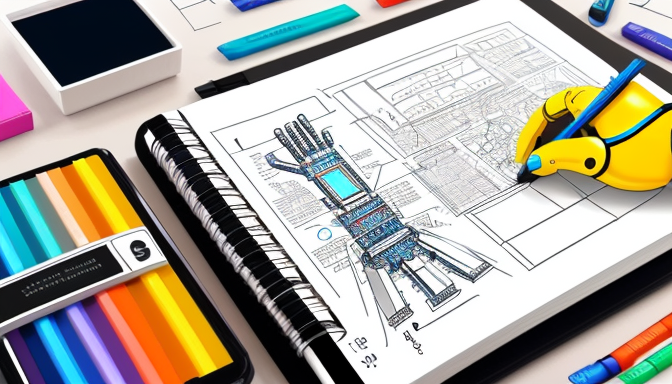In today’s fast-paced digital world, the competition between artificial intelligence (AI) and human capabilities is heating up. It’s not just a battle of brains but a clash of innovation and intuition. As we dive into this fascinating arena, we must consider the latest breakthroughs and applications that are reshaping our future. Think about it: how often do you rely on AI tools in your daily life? From virtual assistants like Siri to complex algorithms that drive autonomous vehicles, AI is everywhere, enhancing efficiency and decision-making.
However, while AI can process data at lightning speed, it lacks the emotional intelligence and creativity that define human experience. Imagine a world where machines can analyze patterns and predict outcomes, but they can’t understand the nuances of human emotions. This is where the human edge truly shines. We possess the ability to think outside the box, to innovate, and to empathize—qualities that machines are still struggling to replicate.
As we explore this ongoing tech battle, it’s essential to recognize that both AI and humans have their unique strengths and weaknesses. The future will likely see a collaboration rather than a competition. So, who will win? Perhaps the real answer lies in how we can leverage the best of both worlds to create a more harmonious and efficient society.
The Strengths of AI
Artificial Intelligence (AI) is transforming our world at an unprecedented pace. Imagine a tireless worker who never sleeps, never takes a break, and can process vast amounts of data in seconds—this is the essence of AI. One of its most compelling strengths is its efficiency. AI systems can analyze information and generate insights far quicker than any human could. For instance, in the healthcare sector, AI algorithms can sift through thousands of medical records to identify patterns that might take humans years to discover.
Moreover, AI excels in data processing capabilities. With the ability to handle massive datasets, AI tools can uncover trends and anomalies that would otherwise go unnoticed. This capability is revolutionizing industries from finance to marketing, where data-driven decisions are paramount. As businesses strive to stay ahead, AI acts as a crucial ally, enabling them to make informed choices swiftly and accurately.
Let’s not forget about automation. By automating repetitive tasks, AI frees up human resources for more creative and strategic pursuits. This shift not only enhances productivity but also allows for a more engaging work environment. In manufacturing, for instance, AI-powered robots can assemble products with precision, reducing errors and increasing output.
In summary, the strengths of AI lie in its ability to enhance efficiency, process data at lightning speed, and automate mundane tasks. As we continue to explore the latest breakthroughs and applications, it’s clear that AI is not just a tool; it’s a game-changer in our digital future.

The Human Edge
When it comes to the showdown between humans and artificial intelligence, one can’t help but marvel at the unique qualities that give humans the upper hand. While AI dazzles with its speed and efficiency, it often falls short in areas that require a human touch. Think about it: can a machine truly understand the nuances of human emotions? This is where our emotional intelligence comes into play. We can empathize, connect, and relate to one another in ways that AI simply cannot replicate.
Moreover, creativity is another realm where humans shine brightly. While AI can generate art or music based on patterns, it lacks the ability to create something truly original. Humans draw from personal experiences, emotions, and cultural backgrounds, weaving them into a tapestry of creativity that is uniquely ours. For instance, consider how a painter captures the essence of a sunset—it’s not just about the colors but the feelings evoked by that moment. AI may mimic this, but it can never truly feel it.
Additionally, when it comes to ethical reasoning, humans possess a moral compass that guides our decisions. We weigh the consequences of our actions, often considering the greater good. AI, on the other hand, operates on algorithms and data, lacking the ability to make ethical judgments. This is crucial in fields like healthcare, law, and education, where human insight is paramount.
In summary, while AI continues to advance at an astonishing pace, the human edge lies in our ability to connect, create, and contemplate. We bring a depth of understanding and emotional richness that machines simply cannot match. So, as we forge ahead into an increasingly tech-driven future, let’s celebrate the irreplaceable qualities that make us human.
Frequently Asked Questions
- What are the main advantages of AI over humans?
AI excels in processing vast amounts of data at lightning speed, making it incredibly efficient for tasks like data analysis and automation. Think of it as a super-fast calculator, able to handle complex calculations while humans might take hours or even days!
- Can AI truly replicate human creativity?
While AI can generate art and music, it lacks the genuine emotional depth and personal experiences that fuel human creativity. It’s like a parrot mimicking sounds; it can mimic but doesn’t truly understand the meaning behind the art.
- How does emotional intelligence play a role in human capabilities?
Humans possess emotional intelligence, allowing us to empathize and connect with others on a personal level. This quality is crucial in fields like counseling or leadership, where understanding feelings can make all the difference!
- Will AI eventually replace human jobs?
While AI may automate certain tasks, it is more likely to change the nature of jobs rather than eliminate them entirely. Think of it as a tool that can handle repetitive tasks, freeing up humans to focus on more complex and creative challenges!